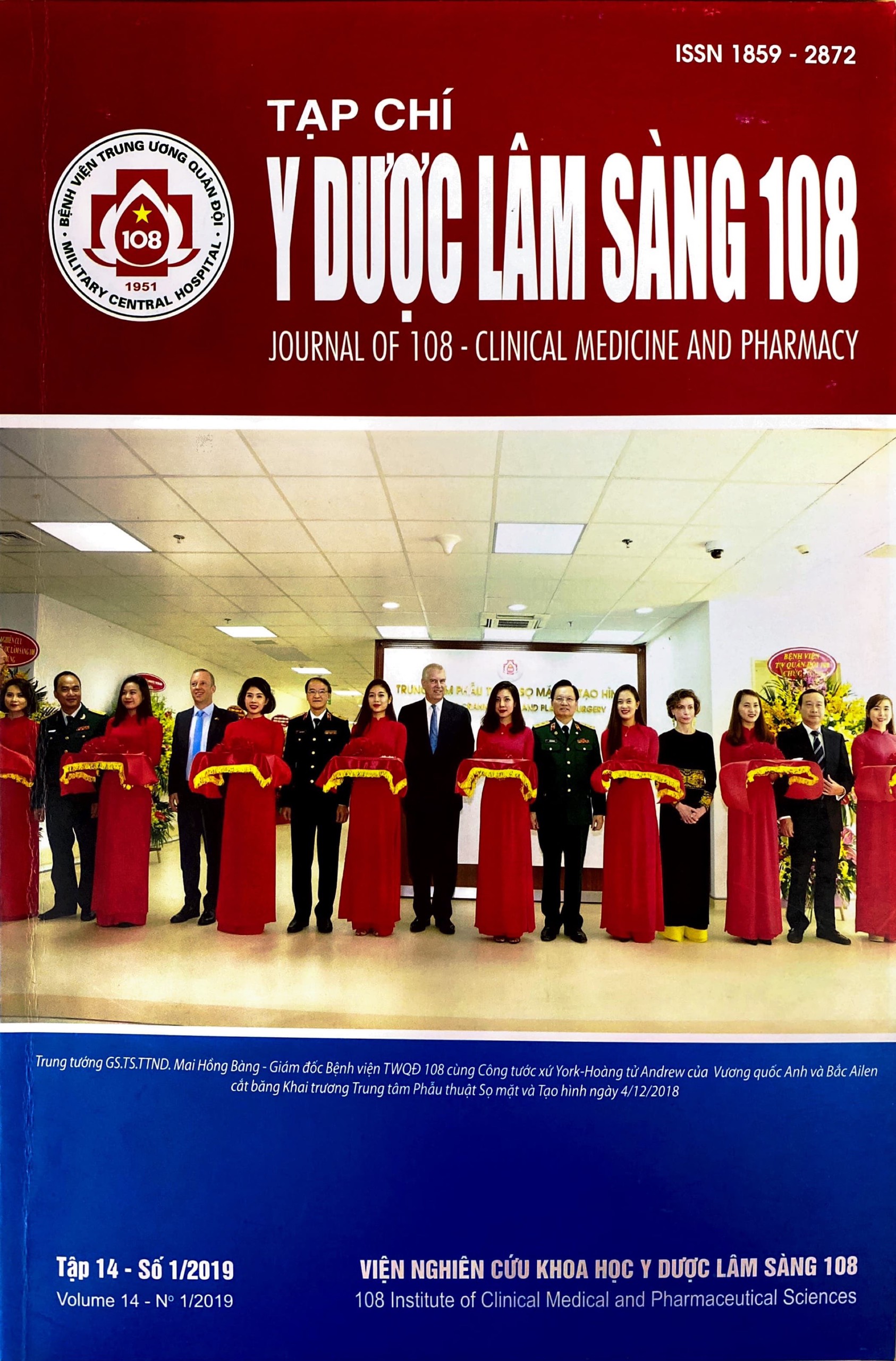Study of phenobarbital drug related to dementia in adults with idiopathic grand mal seizure
Main Article Content
Keywords
Abstract
Objective: To assess the relation of phenobarbital drug to dementia in adult with grand mal seizure. Subject and method: Cross-sectional descriptive study in 100 adults with epileptic grand mal seizures. The patients were divided into two groups: Group 1 was the patient who used phenobarbital at the local health service under the National Program; group 2 was those who received other anti-epileptic drugs taken at the Bach Mai Hospital. Each patient was examined for clinical and psychological tests to assess dementia. Result: The rate of dementia in patients taking phenobarbital was 36%, which 4.13 times higher than that of other anti-epileptic drugs (p=0.0243) (OR = 4.13, Cl: 1.47 - 11.56). Dementia was mainly concentrated in the age group of 18 - 40 years old with more than 90%. In the phenobarbital group, dementia was mainly seen in the patients having age of onset under 6 years old, accounting for 61.1%, which was 9.036 times higher than that of the other anti-epileptic drugs (p=0.01, OR = 9.036, Cl: 18 - 37.5). In patients with the disease duration over 5 years, dementia accounted for 43.8% in the phenobarbital group, 5.02 times higher than that in the other group (p=0.002, OR = 5.02, CI: 1.73 - 14.61). Conclusion: Dementia was 36% in patients taking phenobarbital and was 4.13 times higher than in other anti-epileptic drugs. Dementia was predominantly in the age onset group of less than 6 years of age, and also in this group, patients with phenobarbital had a higher incidence of dementia, 9 times higher than those in the other anti-epileptic drugs. Duration of disease over 5 years in the group of phenobarbital was 5 times higher rate of dementia than other anti-epileptic drugs.
Article Details
References
2. Donati F, Gobbi G, Campistol J et al (2007) The cognitive effects of phenytoin versus phenobarbital or valproate in newly diagnosed children with partial seizures. Seizure 16: 670-679.
3. Farwell JR, Lee YJ, Hirtz DG et al (2009) Phenobarbital for febrile seizures - effects on intelligence and on seizure recurrence. N Engl J Med, 322: 364-369.
4. American Psychiatric Association (2000) Diagnostic and statistical manual of mental disorders. DSM- IV-TR, 4th ed, Washington.
5. Gomer B, Wagner K, Frings L et al (2007) The influence of antiepileptic drugs on cognition: A comparison of phenobarbital with topiramate. Epilepsy Behav 10: 486-494.
6. Meador KJ, Gevins A, Loring DW et al (2007) Neuropsychological and neurophysiologic effects of phenobarbital and levetiracetam. Neurology 69: 2076-2084.
7. Meador KJ, Loring DW, Moore EE et al (2005) Comparative cognitive effects of phenobarbital, phenytoin, and valproate in healthy adults. Neurology 45: 1494-1499.
8. O’Leary DS, Lovell MR, Sackellares JC et al (2009) Effects of age of onset of partial and generalized seizures on neuropsychological performance in aldults. J Nerv Ment Dis 17: 624–629.
9. Ortinski P, Meador KJ (2004) Cognitive side effects of antiepileptic drugs. Epilepsy Behav 5(1): 60-65.
10. Salinsky MC, Binder LM, Oken BS et al (2002) Effects of phenobarbital and carbamazepine on the EEG and cognition in healthy volunteers. Epilepsia 43: 482-490.
 ISSN: 1859 - 2872
ISSN: 1859 - 2872
